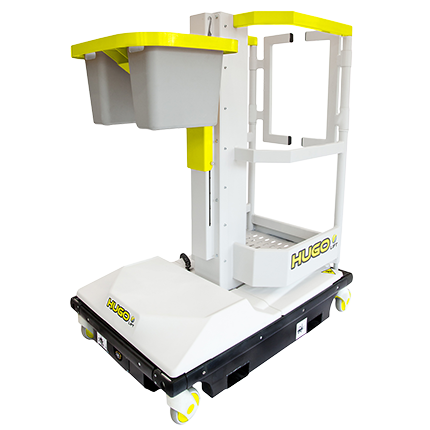Training courses
IPAF Static Boom - Category 1b
Who should attend?
This course is for anyone who operates, supervises or manages the use of powered access equipment category (1b)
Maximum 8 delegates per day
1-3 day course
Delivered at your site
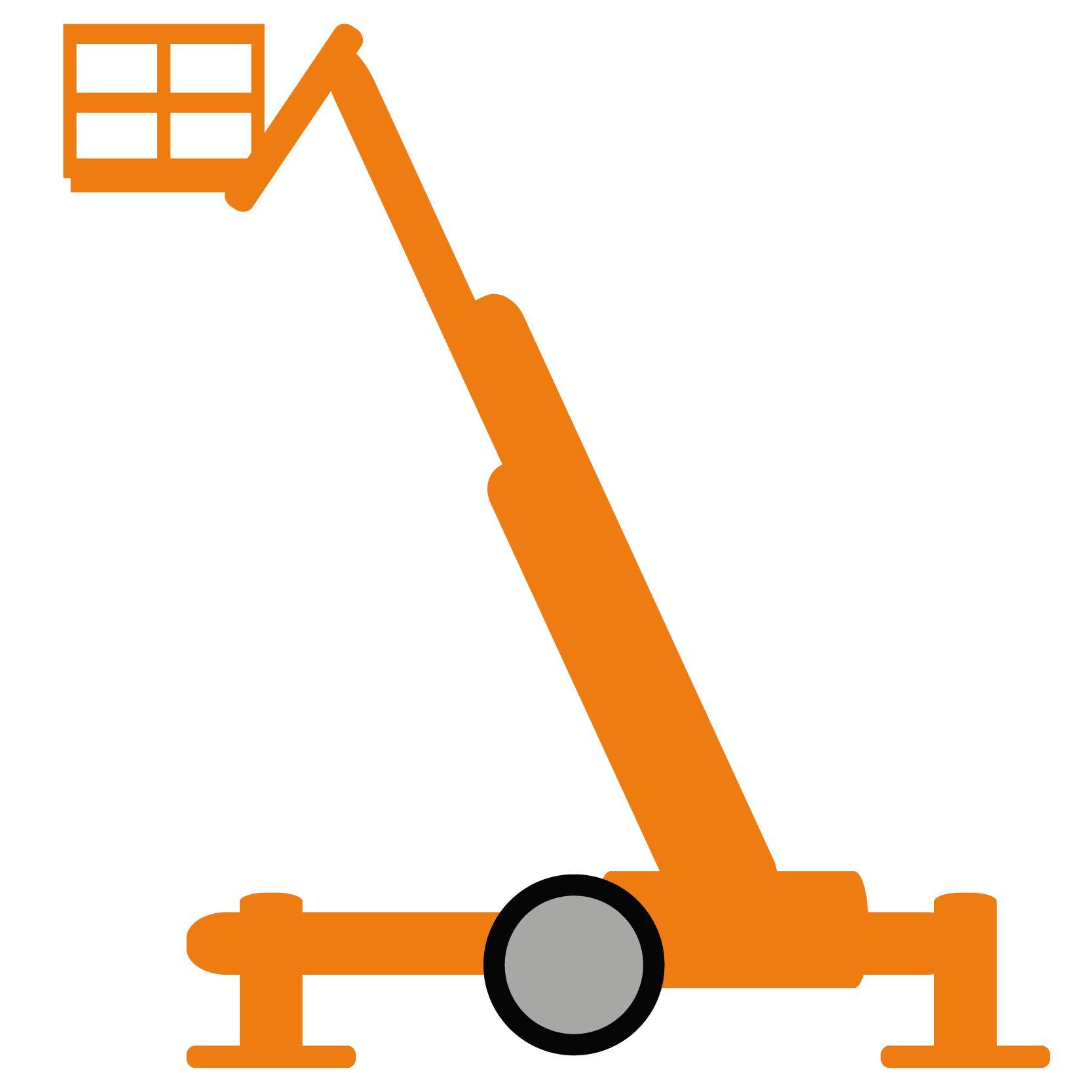

Course Content
- IPAF MEWP categories
- Pre-use inspections
- Safe Operating methods and hazards
- DO’s and DON’Ts
- Parking
- Accidents, near misses and dangerous occurrences
- Regulations and Standards
IPAF 1b Static Boom Course Description
This course instructs an operator to prepare and safely operate powered static booms which include Spider booms on tracks or wheels, Van-mounted booms, Truck-mounted booms or Trailer-mounted booms.
As this type of equipment can be very complex we often recommend a course longer than 1 day. This is dependant on the model of equipment and the experience of the delegates. Please ask for further details
A mix of theory and practical training, this course is designed to enable operators to
This course is Instructor-led practical training with both a written and practical assessment.
Delegates successfully completing the course will receive an IPAF Certificate and Powered Access Licence (PAL) Card valid for 5 years.
On-site training
Our on-site training is available anywhere in the UK and Ireland subject to minimum numbers. A suitable room would be required for on-site training for the theory section of the course, and a static Boom is needed for the practical.
Find out the next available dates
Contact our training team today on +44 (0) 113 524 1018 for the latest availability to discuss your requirements.
Useful Information
The Work at Height Regulations 2005 requires employers to ensure that employees are appropriately trained to carry out their work safely. HLS is a specialist provider of training for safe and compliant working at height. These courses may be provided on your site, potentially using your own equipment, or at one of our training centre partners.
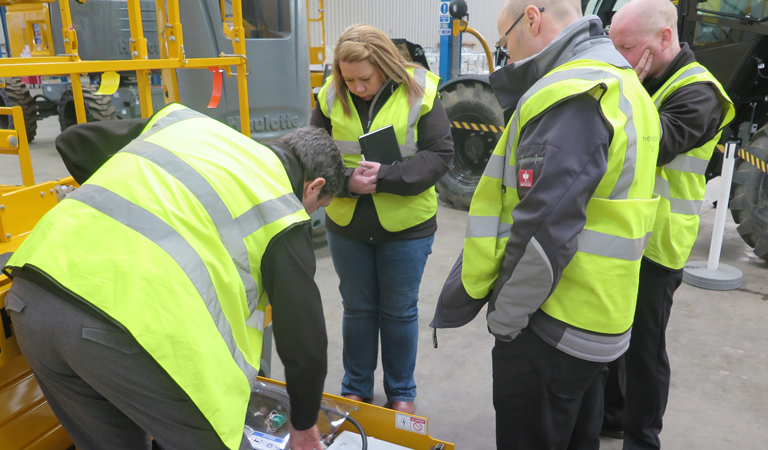
Stuart, HLS MD
“HLS offers a number of internationally recognised training courses, including IPAF and IOSH, and can also deliver bespoke training to meet site-specific needs. Our training can either be carried out on site at customers’ premises or in one of our dedicated UK training facilities, and we can organise refresher courses to ensure continued compliance with the latest best practice and legal requirements.”
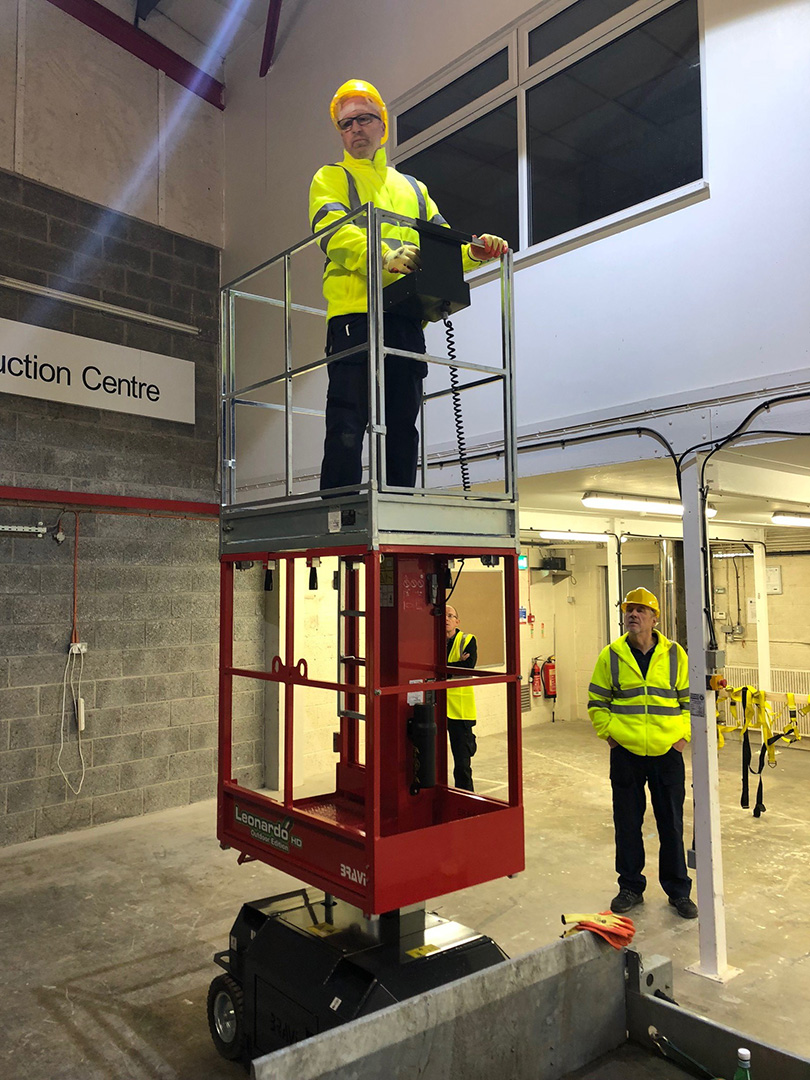
Frequently Asked Questions
Work at Height Training
- Where does the training take place?
The majority of our training takes place at your site. We have a national network of instructors who come to your site to conduct your course using your equipment. We also have access to training centres nationwide where we can book a single delegate or a full course. The off-site courses will always provide the equipment you are being trained on. (When training is carried out off-site, suitable equipment for the training category/course being undertaken will be provided.)
- What environment do we need to provide for training?
Theory area - We will require access to a suitable uninterrupted meeting room to carry out the theory element of the course. The room should have chairs, a table for the instructor to set up a projector, laptop and screen or wall suitable for projection, and a 240 volt power supply. Should have adequate ventilation/heating and access to toilet facilities. The minimum training room size is 15m square (5 metres by 3 metres) or 2.5m square per person – whichever is larger.
Practical Area - The area provided for practical training for IPAF 1a and 3a machines must be a minimum of 5 times the length of the chassis squared and for PASMA, 1b and 3b the radius of 75% of the maximum operating envelope. Must be cordoned off from pedestrian/vehicular traffic. Area must be free of debris and overhead hazards such as craneage. Must be available for the whole afternoon without interruption and be quiet so the instructor can be heard. We plan on doing the practical training outside. Is that ok - Yes So long as the equipment is outdoor rated. In the event of adverse weather conditions, the course may be subject to cancellation unless there is a suitable indoor training area available where the platform can be erected to its full height. If wind speeds are in excess of 17mph, according to the instructor's anemometer, an alternative training area will be sought.
- Can we have training on an evening, weekend or overnight?
Yes, the majority of our courses are run Monday to Friday 8am to 6pm but our trainers can be flexible and offer out of hours training to suit you and your team. Get in touch for availability and pricing.
- We are using our own equipment for the training, do we need to prepare it in any way?
Yes, any powered equipment/ MEWPS must have a record of an in-date LOLER examination and be available with/on the equipment. The equipment should be checked by a competent person to ensure it is physically sound and operates correctly. Has the MEWP been checked to ensure the platform is free of debris, control panels/decals checked to ensure that they are legible. Make sure MEWP is fully charged/fuelled and keys available. For mobile & static boom type equipment are there suitable harness anchor points on the MEWP? A copy of the platform’s current instruction/operators manual must be with the equipment and made available to the instructor on the day of training. This must be in English. Practical training cannot be completed without this.
- We don’t have our own equipment but want a training course. Is this possible?
Yes, we can hire MEWP’s and towers to you for training courses. For PASMA tower training we can send the trainer with the equipment needed for the course in our dedicated PASMA van. Get in touch to ask for a quote.
- What training do I need by law?
This is dependent upon the type of equipment. Get in touch and we can talk you through the relevant legislation and what you need to do.
Download Our Featured Guide
If you want to establish a work at height inspection plan that combines daily visual and functional checks by the operators, regular inspections and servicing schedules completed by competent people (usually CAP Certified engineers) - this checklist will help.
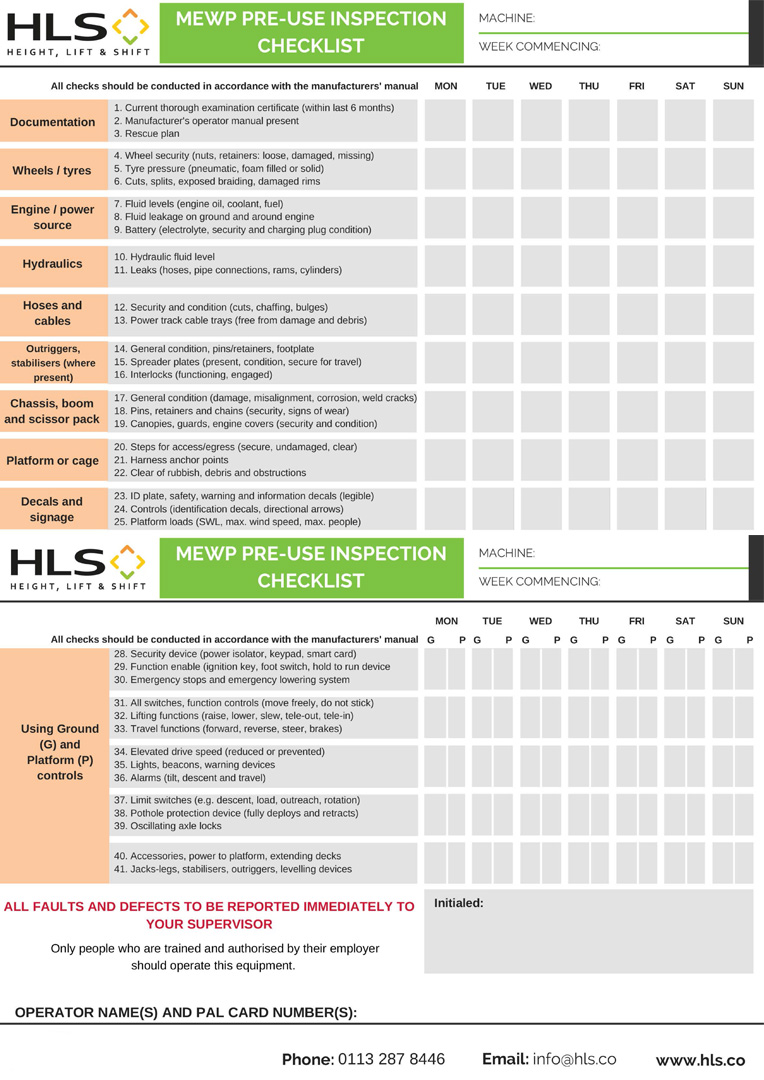
See What Our Clients Had To Say About This Course
Yorkshire based Manufacturer
We find the HLS instructors friendly, knowledgeable and easy to understand. We have had multiple training courses over the years and have found the Instructors eager to help and give our team additional support if required if they are new to the machines or have struggled to understand the content the instructors have taken the time to explain in more depth or in a different way so the team member is able to understand. We use HLS for all our operator training as they are prompt when sending a quote and come back to us with available dates and they contact us before the training is due to take place to make sure we have everything in place ie meeting room booked, MEWP charged with the manual and LOLER certificate with the machine. The instructors have adapted well to the covid measures we have introduced and adhere to them at all times.
Course Enquiry
If you would like a free no obligation quote or some advice from a member of our team, please complete the contact form or alternatively call +44 (0) 113 524 1018
